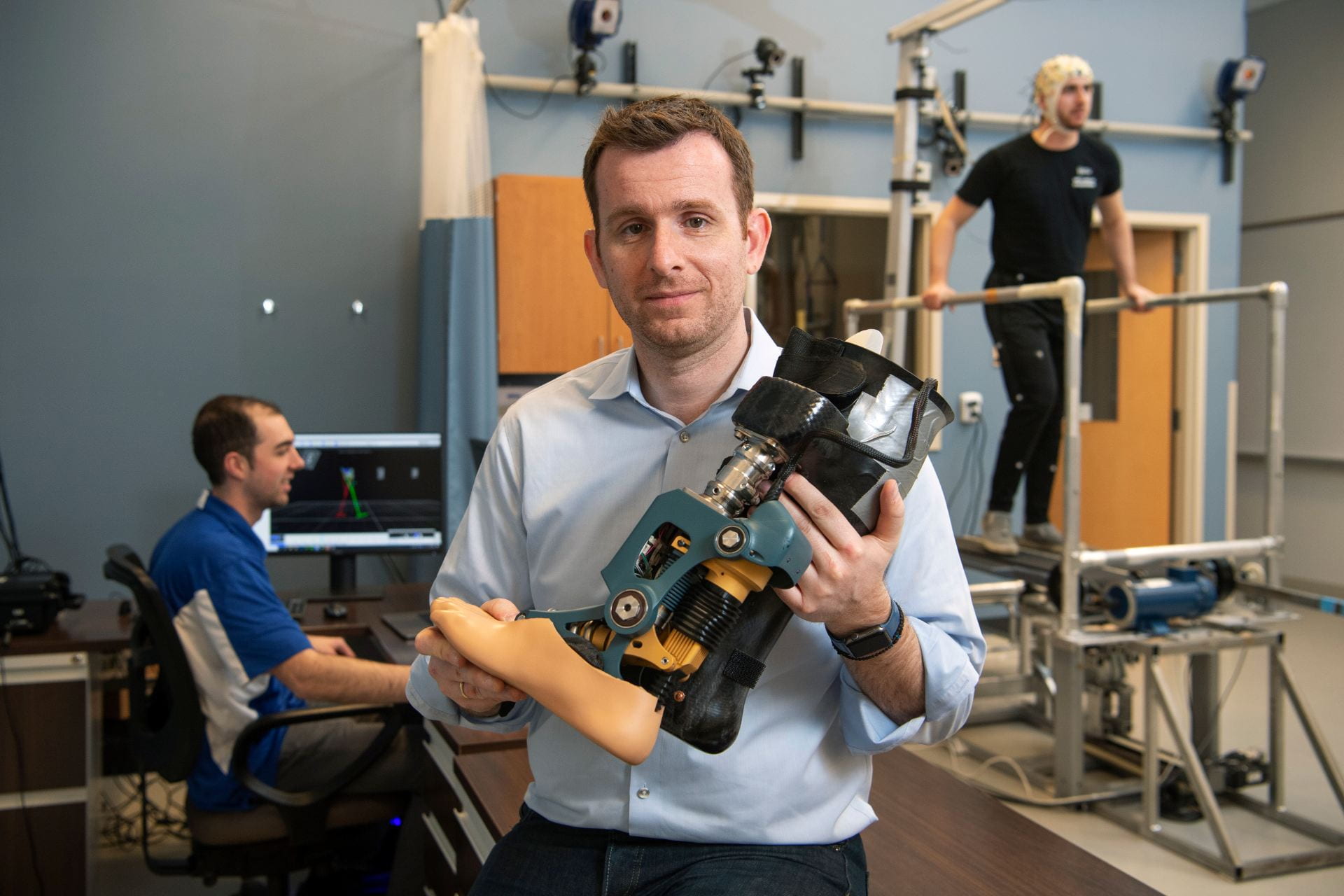Research

Our research at the interface of humans and robots is answering complex questions about the fundamentals of merging machine capabilities with the human brain. The mission of the HORC Lab is to improve the quality of life and work by developing and controlling robotic devices that physically and cognitively interact and collaborate with humans. This interaction can be found in devices that assist and augment human capabilities, as well as provide motor rehabilitation therapy to impaired individuals. In order to accomplish this, we have been focusing on dynamics, modeling, and control of Human-Robot Interaction and Interfaces (HRI2) and on trying to answer important questions regarding the symbiosis of humans and robots in environments that involve physical and cognitive interaction.
Human-Swarm Interaction & Control Interfaces
We explore how human supervisors perceive, plan, and control high-level functions for multi-agent robotic systems, with a focus on developing interfaces that foster symbiotic human-swarm relationships and ensure trust. [details]
Robot-assisted Gait Rehabilitation using the Variable Stiffness Treadmill
We investigate the sensorimotor mechanisms of inter-leg coordination during gait using a unique device, the Variable Stiffness Treadmill (VST & VST 2), aiming to apply these findings to robotic-assisted gait rehabilitation for hemiparetic patients. [details]
Advanced Controllers for Lower-limb Prostheses Enhancing Agility
We develop advanced control systems for lower limb prostheses that enhance stability, agility, and user adaptation by integrating real-time sensory feedback and biomechanics to improve mobility and quality of life for individuals with amputations. [details]
Controllers for Compliant and Safe Human-Humanoid Collaboration
We develop control frameworks for humanoid robots that enhance physical collaboration with humans by enabling compliant, stable, and coordinated behavior during complex collaboration tasks that include physical interaction. [details]
Neural Human-Robot Interfaces for Intuitive Collaboration
We develop advanced neural human-robot interfaces that leverage neural signals to enhance intuitive, adaptive physical interaction between humans and robotic systems for applications in rehabilitation and human augmentation. [details]
Neuromuscular Interface Development for Enhancing Human-Machine Collaboration
We develop advanced neuromuscular interfaces using electromyographic (EMG) signals to enable seamless, real-time human control of robotic systems for applications in rehabilitation, prosthetics, and assistive technologies. [details]
Dr. Artemiadis’ primary research interests have been robotics and autonomous systems that interact with humans. He is an ASME Fellow and a senior member of IEEE, and he serves as editor-in-chief and associate editor in many scientific journals and editorial boards. He is the recipient of the 2014 DARPA Young Faculty Award and the 2014 AFOSR Young Investigator Award.
*Some of the descriptive images on this website are edited versions of images originally generated by DALL-E, an AI-powered image generation tool.














